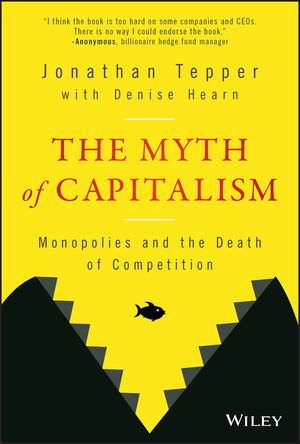A new book says that reimagining is possible. Rebecca Henderson is a well known reference for her studies on pharmaceutical innovation for decades. Beyond pharma, she is recognised by her works on innovation in general. Now, she has released a book on Reimagining Capitalism and this may sound a huge goal. Rebecca provides clear hints about what can be done, and says:
I spend a good chunk of my time now working with business people who are thinking of doing things differently. They can see the need for change. They can even see a way forward. But they hesitate. They are busy. They don’t feel like doing it today. It sometimes seems as if I’m still at the bottom of that ladder, looking up, waiting for others to take the risk of acting in new and sometimes uncomfortable ways. But I am hopeful. I know three things.The titles of the chapters speak by themselves. You'll get the flavour of a great book, and a personal message (in chapter 8). And don't miss chapter 4 on Aetna CEO and the purpose of the firm.
First, I know that this is what change feels like. Challenging the status quo is difficult—and often cold and lonely. We shouldn’t be surprised that the interests that pushed climate denialism for many years are now pushing the idea that there’s nothing we can do. That’s how powerful incumbents always react to the prospect of change.
Second, I am sure it can be done. We have the technology and the resources to fix the problems we face. Humans are infinitely resourceful. If we decide to rebuild our institutions, build a completely circular economy, and halt the damage we are causing to the natural world, we can. In the course of World War II, the Russians moved their entire economy more than a thousand miles to the east—in less than a year. A hundred years ago, the idea that women or people with black or brown skin were just as valuable as white men would have seemed absurd. We’re still fighting that battle, but you can see that we’re going to win.
Last, I am convinced that we have a secret weapon. I spent twenty years of my life working with firms that were trying to transform themselves. I learned that having the right strategy was important, and that redesigning the organization was also critical. But mostly I learned that these were necessary but not sufficient conditions. The firms that mastered change were those that had a reason to do so: the ones that had a purpose greater than simply maximizing profits. People who believe that their work has a meaning beyond themselves can accomplish amazing things, and we have the opportunity to mobilize shared purpose at a global scale.
1 “WHEN THE FACTS CHANGE, I CHANGE MY MIND. WHAT DO YOU DO, SIR?”
Shareholder Value as Yesterday’s Idea
2 REIMAGINING CAPITALISM IN PRACTICE
Welcome to the World’s Most Important Conversation
3 THE BUSINESS CASE FOR REIMAGINING CAPITALISM
Reducing Risk, Increasing Demand, Cutting Costs
4 DEEPLY ROOTED COMMON VALUES
Revolutionizing the Purpose of the Firm
5 REWIRING FINANCE
Learning to Love the Long Term
6 BETWEEN A ROCK AND A HARD PLACE
Learning to Cooperate
7 PROTECTING WHAT HAS MADE US RICH AND FREE
Markets, Politics, and the Future of the Capitalist System
8 PEBBLES IN AN AVALANCHE OF CHANGE
Finding Your Own Path Toward Changing the World








